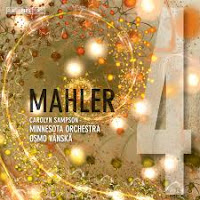As a violinist I was irresistibly drawn to the first choice for this month's reviews - Philip Glass's Violin Concerto No. 2, 'American Four Seasons' (Piotr Plawner, Violin, Berner Kammerorchester, c. Philippe Bach, Naxos American Classics).
I'm sure that Glass is long past the label of minimalist, but he might forgive me if I use the term here, as the style of simple arpeggio figures and insistent repetition has much in common with the Baroque, where rhythm and pattern are significant features. Vivaldi's famous 'Seasons' piece is clearly visible in Glass's compositional mirror, as was his intention. The remaining significant similarity between the two works is the contrast between the expression of power and then lyricism which both concertos capture magnificently. The movements are not labelled with their appropriate season and although others will try to guess which movement is which, I was relieved to escape from that distraction. The concerto was premiered in Toronto in 2009.
My second choice is a familiar symphonic favourite, Mahler's No. 4 (Minnesota Orchestra, c. Osmo Vanska, soloist, soprano, Carolyn Sampson, BIS).
A heavenly delight! If you haven't indulged in this symphony before it is perhaps one of the most soothing, even healing, symphonic experiences that you are likely to encounter. There may well be bubbling musical tensions abounding throughout but don't expect anything but the occasional ff or explosive crescendo. Instead, bathe in an hour's worth of inventive orchestration as the musical narrative unfolds. Having experienced Mahler from the first violin desk, I can tell you how prescriptive the score is, how there is something new every few bars, seemlessly woven into a symphonic whole. When I first heard this symphony, it was somehow spoilt for me by the soprano entry in the final fourth movement, proclaiming a child's vision of heaven, but now the song is an additional high which sums up the whole work. The symphony was composed in 1901.
The third and final choice this month are three string quartets by Donizetti (Nos 4-6, Pleyel Quartet, Koln, CPO)
It was with a little trepidation that I listened to these quartets having been quite disappointed by other such chamber offerings from the Italian bel canto style opera composers of the early 19th century. These quartets were fortunately a delight! The style is, naturally, strictly classical as created by Haydn, the acknowledged master of the genre, so you will know what to expect if you are a fan. However, what I heard in addition was operatic atmosphere in this music, particularly in the slow movements. They evoke the stage - nothing visual, you understand, but a visceral theatrical feeling at the heart of the music.



